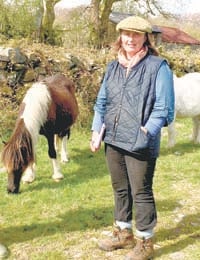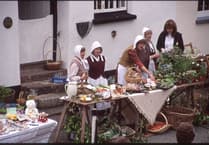EATING Dartmoor Ponies is the step needed to prevent a 'pony-less Dartmoor' a pony support organisation has urged, causing a split in opinion on the controversial issue. The plight of the Dartmoor pony has become difficult over the last few years, with a huge downturn in demand for the animals. The downturn has led to the decline and closure of pony sales, like the one in Tavistock which ceased earlier this year. It has meant that farmers make next to nothing on the animals, making looking after them increasingly difficult.The Dartmoor Hill Pony Association (DHPA) has launched the campaign for the human consumption of pony meat to address these issues.Charlotte Faulkner of the DHPA said that due to various economic and government interference, ponies being born on the moor faced a dire future. She said of up to 900 foals that are born every year, 30% are homed through riding, driving, conservation and as companions, 10% go back into replenishing the herds, replacing those that can no longer survive on the moor, and 60% of the foals are shot.She said she had been pleading for people to take note of the situation for 16 years and through years of research and discussion with various groups, had come up with two solutions for this year's crop of foals — continuing the contraception scheme for the mares which is currently being trialled, and waiting until foals are three-years-old and then putting them into the human food chain. She said: 'Using both these solutions together would mean the farmers could breed from fewer ponies and keep the offspring for three years.'These three-year-olds can then either be put in to training as riding/driving ponies, which they excel at, or be sold for meat. 'There is more of a market for trained three year olds than wild foals, so the majority will be homed.' She said many farmers had stopped keeping ponies as they were no longer viable and a way to make them profitable needed to be found. 'Hill farmers can't afford to keep luxuries and this will mean the moor won't be grazed properly, gorse will flourish making whole areas inaccessible and eventually the tourist trade will drop.' But pony welfare charity South West Equine Protection (SWEP) has said it will never support the campaign.A spokesperson said: 'SWEP does not believe that continuing to over- breed to kill for anyone or anything's consumption is the best solution for the ponies on the commons.'I find it a complete hipocrisy that a charity, which claims to do everything to save the ponies, is suggesting the pony owners continue to over-breed them and then be paid for them to be disposed of and put into the human food chain.' SWEP believes the best way to combat over- breeding is to remove stallions or vasectomise them. The charity has also set up an e-petition to try to halt the project. Ms Faulkner said that the removal of stallions was more of a problem than a solution, possibly resulting in a loss of the gene pool they were working to preserve.She was keen to stress that the project was not about financial gain and the small abattoir they had chosen would only take a maximum of 50 ponies a year. As the annual drift took place earlier this week, the Dartmoor Inn at Merrivale had cooked up some pony meat sausages, supplied by Ms Faulkner, and were handing them out to passers-by. John Hooker, chef proprietor at the Cornish Arms in Tavistock, said pony meat wouldn't be something he would consider adding to his menu.'It's not something that appeals to me — I'm quite a traditionalist,' Mr Hooker said. Dartmoor farmer Mary Alford, who farms just outside Tavistock and has a herd of hill ponies, said there needed to be a sustainable way of keeping ponies on the moor. She said: 'There are a terrific number of ponies that have now gone from the moor as people are not keeping them because they are not viable. 'It is clean, good meat and low in cholesterol. 'I hope Charlotte makes a success of the project. We will be looking into supporting it.'Mrs Alford is also the vice chair of the Dartmoor Commoners' Council and said the council took the view that ponies had to be sustainable as they were essential to the biodiversity of Dartmoor, in conjunction with grazing alongside cattle and sheep. Peter Farnsworth, a partner at Rendells auctioneers in Chagford, which has around 200 ponies entered into its sale on October 9, said he wasn't expecting trade to be better than in recent times.He said he supported the move to cull the animals and sell their meat, though felt many members of the public would need convincing. 'I think half the public will not want to eat pony meat, but the other half will understand why it needs to be done and give it a go,' he said.

Pictured is Charlotte Faulkner of the Dartmoor Hill Pony Association, who is spearheading the controversial scheme to sell Dartmoor pony meat for human consumption, in an effort to save the viability of the breed.
More About:
Comments
This article has no comments yet. Be the first to leave a comment.



